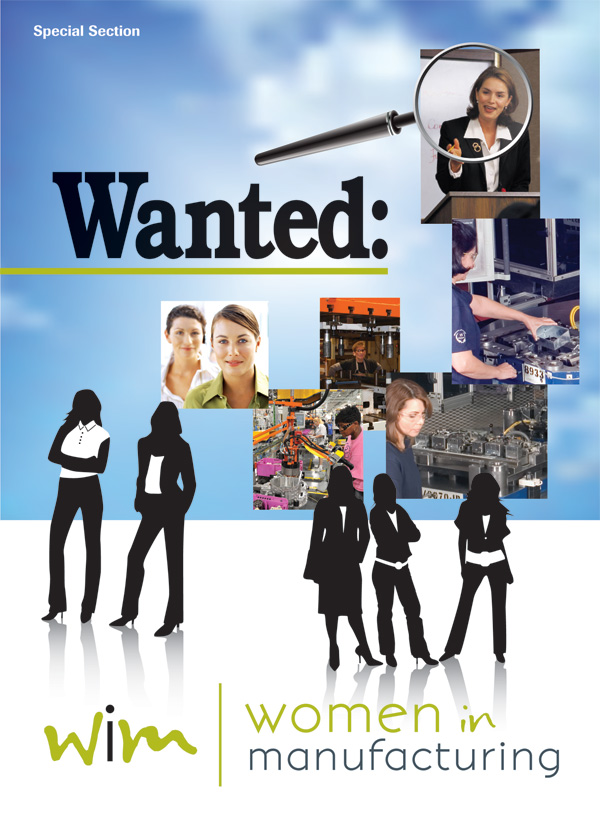A welcome reception, networking dinner and keynote presentation closes out Monday’s agenda. Monday evening’s keynote speaker is Gayle Tauber, founder (along with her husband, Phillip) of natural/nutritious food manufacturer Kashi Company. Gayle and Phillip are entrepreneurs at heart, having launched their first business together in 1973 in Southern California, popularizing indoor plants and trees in the United States. Next came a foray into the bodybuilding industry with the launching of Vince’s Gym.
“Those early business ventures taught Phillip and I several lessons,” Tauber shares. “Among them was understanding the importance of branding, and the benefits of leading a healthy life founded on sound nutrition. That led us to start Kashi.”
Nurture by Nature
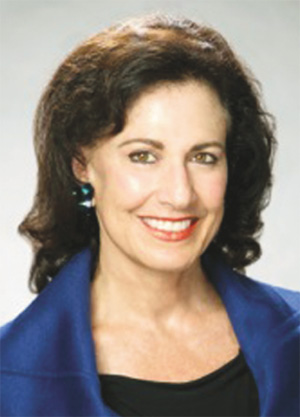 |
“Over time I’ve gained confidence,” says Kashi founder Gayle Tauber, “which affected my leadership style. I’ve learned to understand the importance of allowing employees to grow personally, and professionally… That approach, I’m certain, has helped ensure the success of our businesses over the years.”
|
Tauber and her husband “nurtured” Kashi for 17 years, growing it into an international company before selling to Kellogg Company in 2000. Tauber used the word “nurtured” often during my interview with her, to describe how the company grew. And that notion struck a common chord as I interviewed others for this article. That chord: Women in leadership/management roles often challenge themselves to create a family-like culture where employees feel nurtured and valued.
“As we grew Kashi, we definitely sought to maintain a pleasurable and family-like environment,” Tauber admits. “We set a limit of around 25 employees just to make sure we didn’t lose that family atmosphere. Once we grew beyond the capabilities of 25 people we turned to outsourcing specific functions to focus on our core strengths of sales and marketing.”
Asked to describe her experiences as a woman entrepreneur, Tauber notes that over time she’s “gained self-confidence, which significantly impacted my leadership style. I’ve learned to understand the importance of encouraging employees to grow personally, and also professionally…That approach, I’m certain, has helped ensure the success of our businesses over the years.
|
What are the Leading Workforce Barriers
for Women in Manufacturing?
A survey by Bayer Corp. uncovers these beliefs:

• It is more difficult for women to succeed in their field than it is for men.
• A managerial bias exists that favors men over women.
• There is a lack of professional development opportunities for women.
• Women in manufacturing have little or no networking opportunities.
• Promotional/advancement opportunities are less plentiful than they are for men in manufacturing careers.
Stated less delicately by General Motors plant manager Teri Quigley, in a 2010 Automotive News article:
“In the manufacturing environment, you (women) have to have rhinoceros skin.”
|
“For women in leadership and management roles, whether in manufacturing or any other profession,” Tauber continues, “self-confidence is the key. You must come to the table with a foundation of inner strength. As I continue to devote time to mentoring women who are making their into leadership positions, I strive to instill self-confidence and self-esteem. I find this immeasurably fulfilling.”
One of Tauber’s more recent accomplishments was serving as president of the Southern California chapter of the International Women’s Forum, an invitation-only global organization that seeks to “advance leadership across careers, cultures and continents by connecting the world’s most preeminent women of significant and diverse achievement.” Among the highlights of her term as chapter president, Tauber cites the periodic panel discussions she led with members on various topics, and the takeas that resulted. During her keynote address at the WIM Summit, Tauber will share some of these takeas—or “insights”—with attendees. Among them:
“During one of these panel discussions with a group of women that had served as university presidents, it became evident that women ‘power with’ rather than ‘power on,’” Tauber says. “Biologically, women are collaborators. We are wired to work together to protect our young. We collaborate to ensure we have a support system when we need one, yet we can still make the tough decisions when necessary.”
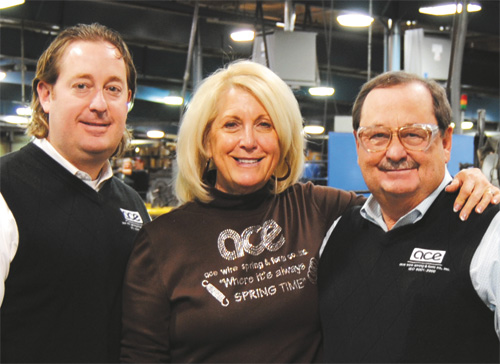 |
|
Ace Wire Spring & Form Co.’s Linda Froehlich (shown here with her husband Rich and son Ritchy) attended last year’s WIM Summit and now is a charter member of PMA’s WIM networking group. Froehlich believes that women in leadership roles naturally tend to nurture their companies and their employees.
“Once we bring new people in, I strive to build a family atmosphere. I want employees to feel comfortable coming to me to share their concerns—professional and personal.” |
Compassionate, Yet Tough
Also used to making the tough decisions at her metalforming company is Linda Froehlich, co-owner and co-president (with her husband Rich) of Ace Wire Spring & Form Co., Inc., in McKees Rocks, PA, near Pittsburgh. Froehlich attended last year’s inaugural WIM Summit, and now is a charter member of PMA’s WIM networking group. She enthusiastically supports WIM’s mission and looks forward to building on the networking and mentoring relationships she forged at the 2011 WIM summit. And, she echoes Tauber’s belief that women in leadership roles naturally tend to nurture their companies and their employees.
“Challenged as we are here in Southwestern Pennsylvania to recruit skilled workers—men and women alike—we’re working with local schools to generate excitement among families and students about the opportunities offered by careers in manufacturing. But once we do bring new people in, I strive to build a family atmosphere here. I want employees to feel comfortable coming to me to share their concerns—professional and personal.”
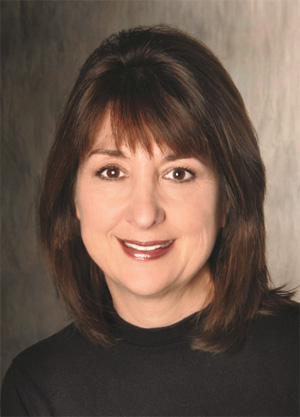 |
| “We as an industry must do a better job of selling manufacturing to women,” says former Harley-Davidson executive Gail Lione. “The jobs available, and that will continue to be available, represent great work opportunities for women, requiring varied skill sets.” |
Throughout my conversation with Froehlich, who along with her husband took the company over from her father in 1976, she refers to Ace’s 50 employees as “family.” And she notes that from the very moment she took the helm, she had the respect of her employees.
“I started working for the company at the age of 14,” Froehlich shares. “So most of the employees here know that I’m not afraid to get my hands dirty on the floor, nor do I fear making the tough management decisions needed to get us where we need to go. They (the employees) know and share my passion, and know well that I can be compassionate when I need to be, and tough when toughness is required.
“I’ve enjoyed the challenges of being a woman in a male-dominated industry,” Froehlich continues, “and at the WIM Summit last year I thoroughly enjoyed networking with like-minded women, committed to success and to overcoming any and all obstacles.”
Former-Harley Executive Bats Leadoff on Day Two
|
Where are Women in the Automotive Industry?

In July 2012, Catalyst released its latest survey findings related to women working in the automotive industry. Some quick takeas:
• In 2011, women held 25.9 percent of the jobs in the motor vehicle and motor vehicle equipment manufacturing industry.
• Women hold 11.5 percent of corporate officer positions in the motor vehicle and parts industry, up just slightly from 11.2 percent in 2002 and 7.5 percent in 1998.
|
Leading off the WIM Summit agenda on Tuesday, October 30, is a welcome address by guest speaker Gail A. Lione, recently retired from Harley-Davidson after having served for 13 years as executive vice president, general counsel and secretary, and chief compliance officer for the company, as well as completing a 5-yr. term as president of the Harley-Davidson Foundation. Lione, named 2012 Milwaukee BizTimes Woman Business Executive of the Year, advises women in the workplace to stay committed to achieving their goals and look at their careers in the long term.
|
Women Starring at Several
Metalforming Companies
Over the last year, MetalForming magazine and the PMA Educational Foundation have collaborated to tell the stories of several leading metalforming companies that were named Metalforming Pioneers as part of a recognition program sponsored by the Hitachi Foundation. These companies were recognized for their commitment to workforce development, and for having experienced quantifiable returns on their training investments.
Of the employees we interviewed at these award-winning companies, several were women who have successfully completed countless training courses, and climbed the ranks within their companies. Here we retell a few of those compelling stories.
At western-Michigan metalformer Pridgeon and Clay, we met a recent graduate of its inhouse APO (automatic press operator) training program: Donna Carrothers. Carrothers joined the company in 1999 as a utility worker, stacking parts and helping the press operators. In 2001 she applied for and was awarded a machine-operator job and later became a lift-truck driver. In February 2007 she was awarded an APO trainee position and by the end of the year had become an APO. Carrothers has enjoyed a boost in wages of nearly 70 percent.
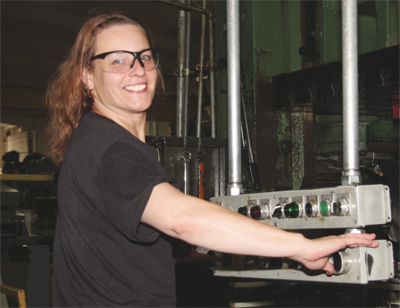
Carrothers, in addition to enjoying having personal responsibility for her work, also relishes opportunities to work on project teams, to lend the perspective of a press operator to help improve productivity and quality on the floor. “I appreciate the opportunity provided to add my thoughts. I may not consider myself an expert yet, but I’m getting there.”
Says Julie Church Krafft, corporate director of human resources: “What Donna is doing on the floor and in project teams is preparing her for the next step, when she’s ready to take it, which is to become a setup technician. And we sure hope she pursues that, because we can’t find good setup techs…we have to grow them.”
At E.J. Ajax Co., Fridley, MN, we met Althea DrePaul, Class B apprentice machine operator and 2008 graduate of the Twin Cities’ M-Powered manufacturing career-development program. “Through M-Powered and Hired, I now have a skill set I never thought I’d have,” says DrePaul. I’ve been given all of the skills I need to be successful—the opportunities are there, I just have to grab them.”
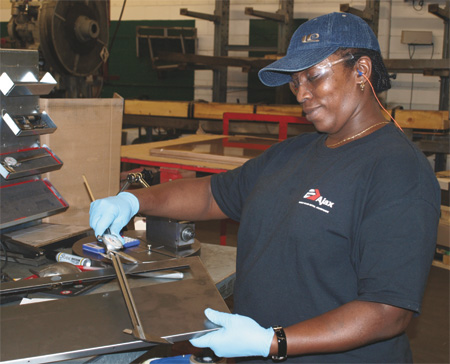
DrePaul emigrated from Guyana in 2001 and worked in the home healthcare industry for several years before being laid off in 2006. As a machine operator at E.J. Ajax, she earns twice what she earned in home healthcare, and also boasts about the company’s benefits program.
In addition to DrePaul’s responsibilities on the plant floor, where she partnered with another operator to earn Ajax’s 2011 5-S project of the year recognition, DrePaul also acts as vice chair of the safety leadership team. As such, she played a vital role during the company’s recertification efforts with the MNSharp (Minnesota Safety and Health Achievement Recognition) program, supporting the firm’s director of employee safety Neng Yang.
“Serving on the safety leadership team and working on our recertification brought a lot of pride and joy in my work,” says DrePaul. “My colleagues respect me, and I respect them. We look to each other for advice, to make the workplace a better place for all of us. It’s an honor to work here and to be involved in the development of our safety culture.”
As he does with several other employees, company vice president and co-owner Erick Ajax sees a bright future for DrePaul, and she can’t wait for the opportunity to live up to his expectations.
“They (Erick Ajax and the rest of the management team) see something in me I had not seen in myself, until now,” says DrePaul. “I’ll continue to put my best out there, and wherever they want me to grow and develop, I’ll do it.”
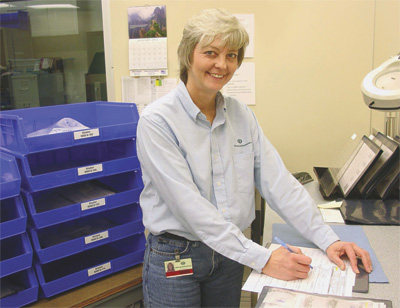
At Oberg Industries, Freeport, PA, we met quality inspector Nancy Macurdy. “I came here wanting to learn and didn’t want a dead-end job,” she explains. “I went through the apprentice journeyworker training, and kept telling my boss that I wanted to learn more.
“Here, if you have the desire to learn and a positive work ethic,” Macurdy continues, “you can take the career path that you want to. The pay is good, and Oberg has provided me with a good job and family balance.”
At GR Spring & Stamping, another western-Michigan stamper, we spoke with Jennifer Robinson, management representative-supplier quality, started at GRS&S in 1999 in the shipping department.
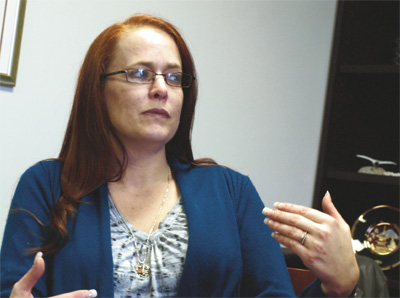
“From the beginning, I wanted to learn everything I could,” she says.
That willingness to learn propelled her to a shipping lead position. Interested in a posted quality position, Robinson was recommended for the job by her boss. The transfer to quality led her, through the company’s tuition-reimbursement program, to college courses where she is working toward a degree in quality engineering.
Responsible for more than 100 GRS&S suppliers, and also an ISO and TS representative, Robinson’s compensation has gone from hourly to salaried, which doubled her pay.
“If you have the desire and drive, there is als room to grow here,” she says. “There is openness here. You see the president and chairman of the company on the shop floor, which never happened at my former employer. And we have meetings where management explains where every dollar goes.
“And, there are no time clocks…are you kidding me?” Robinson exclaims. “That is a level of trust on behalf of the company that I want to keep.”
|
“Focus on the career trajectory of 40 years, not just 10 years,” Lione says, emphasizing that women who take temporary maternity leaves, or even stop working completely to stay home and raise their children, should strive to “stay connected with employers, to ensure you maximize opportunities to have a successful career upon reentering the workforce.” And employers should strive to stay connected to them to ensure they don’t lose the knowledge base and talent.
Lione knows all-too well the statistics cited earlier in this article—that women comprise only 25 to 30 percent of the manufacturing workforce. As such, she actively encourages women to closely evaluate their options when it comes to STEM careers (science, technology, engineering and mathematics).
“We as an industry must do a better job of selling manufacturing to women,” Lione stresses. “The jobs available, and that will continue to be available, represent great work opportunities for women, requiring varied skill sets.”
Lione saw excellent examples of the positive impact that women can have on manufacturing operations during her time at Harley. “We worked hard to recruit more women into the company, at all levels. In some s, having more women in the workforce helped the company design for and market products to women consumers. We sought and developed diversity of thought and contribution, and it continues to pay off for Harley.”
“Having a diverse leadership team became critical to ensuring we connected with women consumers, as well as men,” she says. “Now when I am riding my motorcycle, more of the ponytails I see on fellow motorcycle riders belong to women.”
Hiring women onto the Harley-Davidson team was not the end of Lione’s commitment to building a diverse workforce, it was the beginning. Noting that while she was one of very few women in law school, “I was fortunate at school to be mentored by a few women professionals, as well as women attorneys when I entered the workforce,” Lione says. “Those mentors taught me that all things are possible; you can achieve balance between work and home life, but it has to be your own. And so I’ve tried to pay that mentoring forward throughout my career—at Harley-Davidson and now in my roles as a member of several boards of directors (including a recently completed stint as chair of the Metropolitan Milwaukee YMCA), and as an adjunct professor at Marquette University Law School.
“Giving back as a successful careerwoman is vital,” Lione concludes, “to encourage women to continue to climb the career ladder and move into management positions, in manufacturing and elsewhere. A 2011 Catalyst survey found that companies with more women board members and women in senior management outperform those lacking women in these positions. And, interestingly, a new Catalyst study conducted with the Harvard Business School found that companies flush with women leaders also tend to be top-notch corporate citizens, in terms of philanthropy and giving back to their communities.”
Women are making strides in some business environments; “It’s time they made their into manufacturing,” says Lione.
Best-Practices Panel Discussions
A panel discussion on Best Practices for Manufacturing Management follows Lione’s talk.
Panelists include:
• Marcia Brey, GE Appliances
• Sandra Claiborne, Renault Nissan
• Debra Dyke, MAG IAS, LLC
• Rachel Heidenreich, Rockwell Automation
• Shontra Powell, Johnson Controls
• Margaret MacLean, MacLean Power Systems
Then, following lunch, are roundtable discussions on:
Professional Development
• Claudia Knowlton-Chike & Mary Blenn, GE Healthcare
• Jennifer Johns Friel, Mid-West Fabricating
• Cathy Hare, Plante & Moran, PLLC
• Ester Codina, Sandvik Coromant
• Erickajoy Daniels, Brady Corp.
Leadership/Mentoring
• Dee Martin, Bracewell & Giuliani
• Marion Wells, Human Asset Management
• Sian Marcone, RG Steel Sparrows Point, LLC
• Susan Lesser, nPlusOne Consulting
• Laurie Harbour, Harbour Results
• Sheila Ratza, Brady Corp.
Marketing/Creativity
• Karin Lindner, KARICO Performance Solutions
• Latanyua Robinson, Latrobe LLC
• Beri Fox, Marble King, Inc.
• Linda Allen, AM General
• Kellie Treppa, Schuler Inc.
• Christine Lobas, StudioThink
Talent is Critical—Learn How to Recruit and Retain Women
Last but not least, the WIM Summit concludes with a presentation from Deloitte and The Manufacturing Institute on The State of Women in Manufacturing. The two organizations collaborated recently to conduct a survey on the roles that women are playing in manufacturing, and learn more about what companies can do to attract, retain and promote women.
“Throughout the several years we’ve been gathering and studying statistics on the role of women in manufacturing,” says Craig Giffi, U.S. leader of Deloitte’s manufacturing industry practice, “we’ve found that even when women do opt for careers in industry, they tend to leave prematurely, feeling driven a. In most cases, the reasons stated for leaving and choosing to continue their careers a from manufacturing can be avoided.”
What’s forcing these women—an essential portion of the talent pool—to become disenchanted with manufacturing?
“Eighty percent of those surveyed say that it’s more difficult for women compared to men to have a successful career in manufacturing,” Giffi says. “Women claim to experience a lack of equally dispersed promotion opportunities, and the opportunities to take on the types of challenging projects that allow them to grow, learn and progress in a company.”
“Women aren’t leaving manufacturing companies for compensation reasons,” adds Jodi Benkarski, a program manager in Deloitte’s manufacturing industry practice. “They’re looking for recognition and opportunities to prove themselves, by taking on challenging assignments.”
Giffi and Benkarski agree that women aren’t looking for special treatment—most successful women, such as those interviewed for this article, insist that they’ve made it on their own, while crediting in most cases peer-mentors that offered advice all along the . The culture has to change, as does the image of manufacturing, in order to attract and then retain women in manufacturing companies. Otherwise, we’re limiting our companies to only half of the available talent pool.
These and other topics will be on the agenda at the second annual Women in Manufacturing Summit. For more information, please visit www.womeninmanufacturing.org, or contact Allison Grealis: agrealis@pma.org, 216/901-8800. MF Technologies: Management, Training

